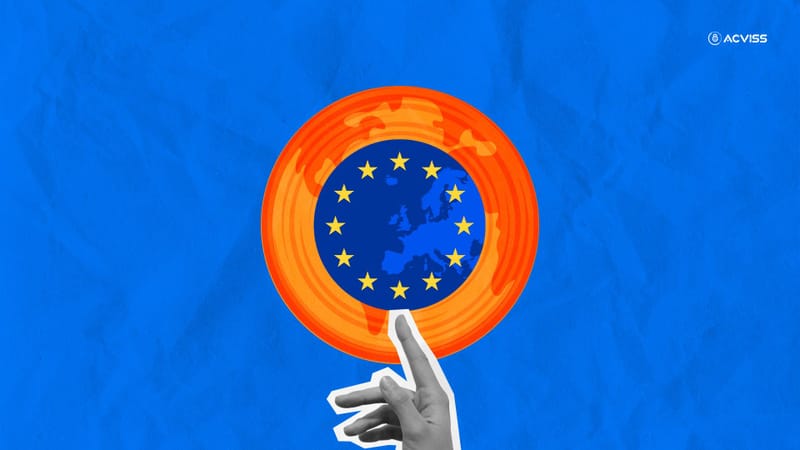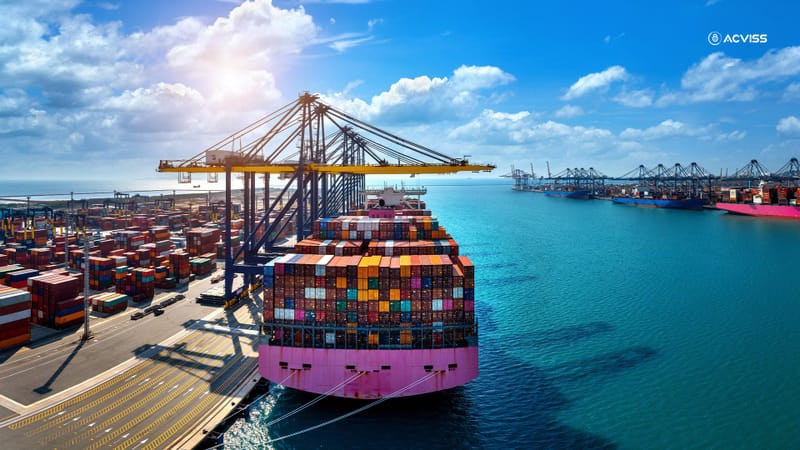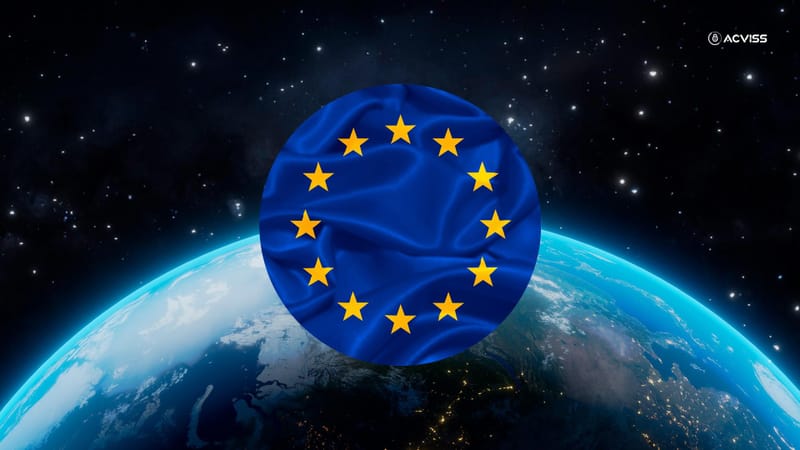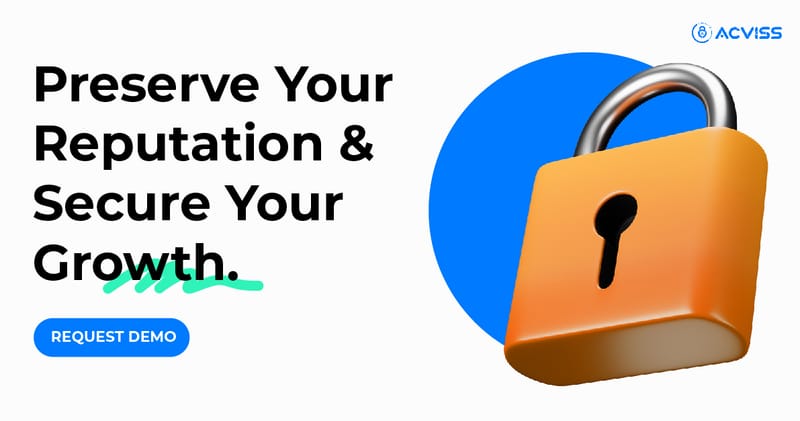The Ripple Effect of EUDR Beyond the EU

The European Union Deforestation Regulation (EUDR) is a significant step towards combating global deforestation and promoting sustainable commodity production by the EU. As per this new EUDR regulation companies and brands operating in the European market, be it businesses like coffee importers or D2C chocolate brands, are required to ensure their products are deforestation-free and legally produced. Although this regulation is limited to the European markets only, its effects are certainly not. The ripple effect of EUDR is clearly visible throughout the globe. It is important for all the stakeholders like the government, brands, companies export business owners and people who live in this world to understand the ripple effects of EUDR beyond the EU. It influences global markets, environmental practices, and socio-economic landscapes.
Understanding EUDR Compliance
As per the EUDR, it is mandatory for certain industries and produce to adhere to the legality of the origin and should be deforestation-free. Commodities like - coffee, soy, palm oil, beef, and timber come under its scope. Also, products that may contain these commodities like furniture, meat, etc. will fall under the EUDR scope. Companies need to make sure that they comply with all EUDR regulations to operate in the European market.
As per the EUDR, any said commodity or product must be produced without violating the law of the origin country. It should also be sourced from deforestation-free land (any land deforested after December 2020 is considered as deforested land. Not only this but during the entire process the companies need to store these products separately from the other products.
For Example: If you are a coffee exporter, you need to not only produce it from deforestation-free land but also, store it in a separate warehouse, make sure it is not mixed up in the shipment and also keep track and data recorded throughout the process.
Companies must provide proof of traceability and legality throughout their supply chains, aiming to eliminate deforestation-linked products from the European market. This regulation impacts various industries, compelling them to adapt their practices to meet compliance standards.
The EUDR will be enforced from 30th December 2024 for companies and for small and medium size companies it becomes mandatory from June 2025. Businesses must be prepared for the EUDR audits to avoid any future inconvenience and gain a competitive advantage over others.
Global Effects of EUDR
As discussed, the EUDR is not just limited to the EU now but has its effect all over the world. Here are a few global effects of EUDR:
Increased Demand for Sustainable Commodities
The EUDR is making consumers globally demand sustainably produced commodities which encourages sustainable farming and forestry practices. This shift helps reduce deforestation rates worldwide, resulting in a global movement towards environmentally responsible production.
Supply Chain Transformation

The need for transparency and traceability leaves businesses no choice but to adopt responsible sourcing practices. This transformation ensures that commodities are tracked from their origin to the final product, promoting ethical supply chains and reducing environmental impact.
Policy Influence
The EUDR sets a benchmark for other countries to implement similar regulations which will potentially create a global level playing field. The ripple effect of EUDR can accelerate deforestation reduction efforts worldwide, making it a catalyst for global sustainability.
Financial Implications
EUDR influences financial markets. It is driving investors towards companies with strong sustainability credentials. This shift encourages the development of new financial instruments to support deforestation-free production, impacting international trade and investment trends.
Impact on Businesses and Brands
Economic Opportunities
Complying with EUDR opens access to the lucrative European market, offering economic growth opportunities for producers in compliant countries. This can prove to be an incentive for businesses to adopt sustainable practices which will enhance their competitiveness in the global market.
Improved Livelihoods
Sustainable farming and forestry practices can improve the livelihoods of small-scale producers and indigenous communities. By meeting EUDR standards, these communities can benefit from better market access and higher product premiums, leading to improved living standards.
Environmental Benefits
EUDR has been enforced with a core objective of promoting environmental protection by reducing deforestation, protecting biodiversity, and mitigating climate change. Sustainable practices also improve water quality and reduce environmental degradation which in turn contributes to healthier ecosystems.
Challenges for Smallholders
Small-scale producers may face challenges in meeting EUDR requirements as they have limited resources and knowledge. EUDR may lead to difficulty in accessing markets and also face challenges due to competition from big companies. This highlights the need for targeted support and capacity-building initiatives.
Challenges and Opportunities
Obstacles Faced by Businesses
Businesses will face challenges like limited resources, complex supply chains, and compliance costs. To balance economic growth and environmental protection, strategic investments and collaborative efforts will be required to overcome these challenges.
The Role of Technology in Overcoming Challenges
Technology plays a crucial role in overcoming EUDR challenges. Innovations like satellite imagery, blockchain, GIS, AI, and IoT can streamline processes, enhance traceability, and improve data management. These technologies help businesses comply with EUDR and also optimise their operations.
Balancing Economic Growth and Environmental Protection
It is important to achieve a balance between economic growth and environmental protection. Businesses must adopt sustainable practices and ensure profitability. This balance can be achieved through collaborative efforts, investment in technology, and adherence to regulatory standards.
Collaborations and Partnerships for Success

To successfully implement EUDR, collaborations between governments, NGOs, and the private sector are crucial. Partnerships can provide the necessary support, resources, and expertise to help businesses, especially smallholders, meet compliance requirements.
Importance of Technology in Addressing EUDR Challenges
Various advanced technologies can help overcome EUDR challenges and grab the opportunities.
- Satellite Imagery and Remote Sensing: This is real-time monitoring of deforestation and land use changes. It will help to recognise deforestation land if any and help brands and export business owners to take preventive measures.
- Blockchain: Blockchain enables a secure and transparent traceability of products from farm to consumer.
- Geographic Information Systems (GIS): Mapping and analysing land use patterns to identify deforestation hotspots. Which a brand can avoid in the future before getting their resources employed into it.
- Artificial Intelligence (AI): AI can help in analysing large datasets seamlessly and identify patterns and predict risks which will help brands to mitigate risks.
- IoT (Internet of Things): IoT can help in collecting environmental data to optimise agricultural practices. Not only this but will also help in keeping the real-time and physical data of the product throughout its journey from farm to the customers.
Overcoming Technological Challenges
Given the EUDR guidelines, it's almost not an option to operate without technology within the supply chain. However, Implementing technology solutions has its own set of challenges like data privacy, digital divide, and costs. To overcome these challenges the brand and companies are required to have robust data protection measures, capacity-building initiatives, and strategic investments in technology.
Brands and export business owners should adopt advanced technologies like GPS tracking, blockchain and remote sensing to make sure the goods are compliant and the supply chain is transparent. They make use of data analytics to monitor and analyse activities throughout the supply chain and ensure adherence to EUDR regulations.
Role of Acviss in EUDR Compliance

Origin by Acviss provides an effective solution for tracking, traceability, and data management. By leveraging advanced technologies, Acviss helps brands and export businesses meet EUDR requirements, ensuring compliance and enhancing sustainability.
The European Union Deforestation Regulation (EUDR) may be a rule set for the European market but its impacts are undoubtedly beyond the EU. Not only business, but all aspects globally are facing some effects due to this regulation, mostly the good ones. If seen from a business point of view, this can open endless opportunities and indeed a new start. They can get ahead of their competition, win customer trust and loyalty and just by complying with the EUDR policies people all over the world seeking sustainable products can become your customers. Businesses must adapt to these changes, leveraging technology and collaborative efforts to meet compliance requirements. By embracing sustainable practices and investing in technological solutions, companies can thrive in the evolving regulatory landscape and contribute to a more sustainable future.
Acviss is alongside all the brands to drive your success. At Acviss we have protected 2 Billion+ products and worked with 80+ brands globally and still going. If you are curious about how we can help you ease your supply chain traceability to comply with EUDR, feel free to reach out to our experts.
Frequently Asked Questions
1. How does the EUDR impact global markets outside the EU?
Due to EUDR, there is influence in global markets that is increasing demand for sustainably produced commodities, transforming supply chains to prioritise transparency and traceability, and setting a benchmark for other countries to adopt similar regulations. This has created a ripple effect that is driving global sustainability efforts and impacting international trade and investment trends.
2. How can technology help businesses comply with the EUDR?
Technology plays a crucial role in helping businesses comply with the EUDR. Tools like satellite imagery, blockchain, Geographic Information Systems (GIS), Artificial Intelligence (AI), and the Internet of Things (IoT) can streamline processes, enhance traceability, and improve data management. These technologies help businesses to meet EUDR requirements while optimising their supply chains.
3. What are the long-term benefits of complying with the EUDR?
There are many long-term benefits of complying with the EUDR. Some of them include access to the European market, improved livelihoods for small-scale producers, enhanced environmental protection, and increased consumer trust in brands. Compliance also makes it necessary for businesses to make sure the products are deforestation-free and legally produced commodities.
4. When will the EUDR be enforced, and what should businesses do to prepare?
The EUDR will be enforced from December 30, 2024, for large companies, and from June 2025 for small and medium-sized enterprises. Businesses should start preparing for it as soon as possible. They can start preparing by investing in technology, collaborating with partners, and ensuring their supply chains are transparent, traceable, and compliant with the regulation.
5. How can businesses balance economic growth with environmental protection under the EUDR?
Balancing economic growth with environmental protection under the EUDR requires businesses to adopt sustainable practices, invest in advanced technologies, and collaborate with stakeholders. By doing so, companies can meet regulatory requirements while ensuring profitability and contributing to global sustainability efforts.
